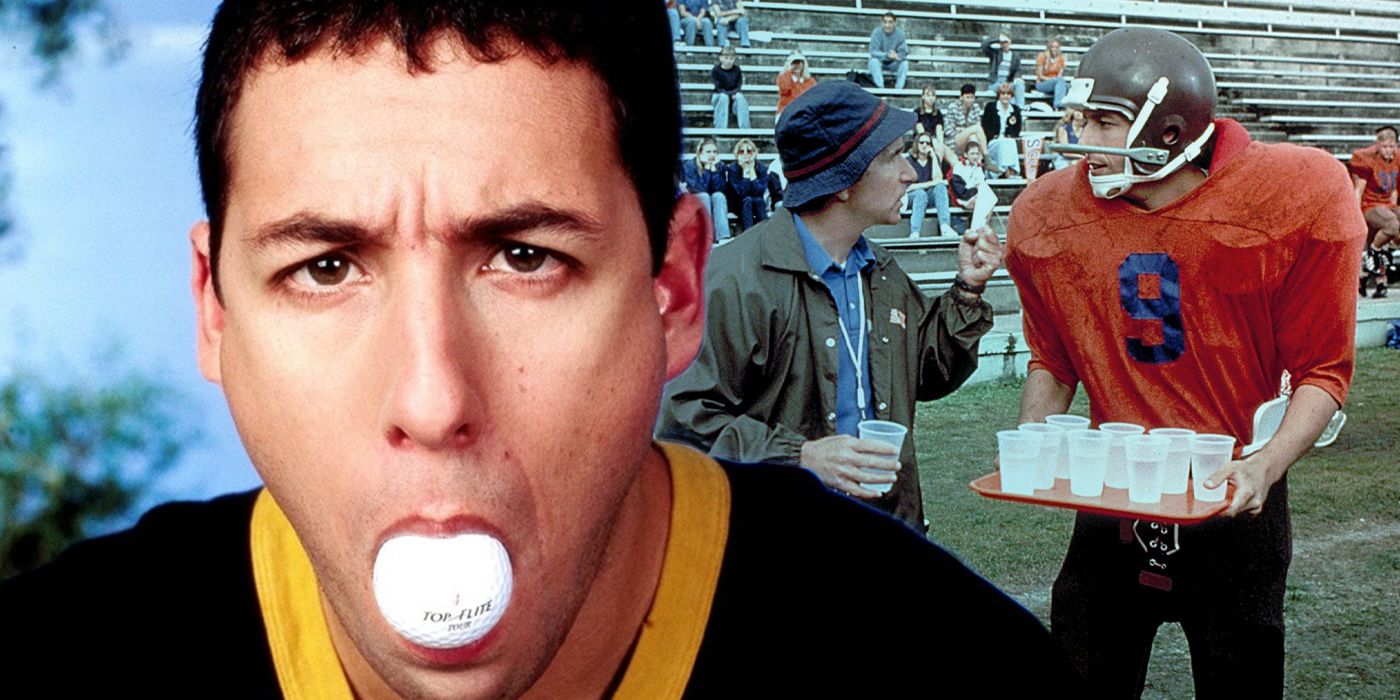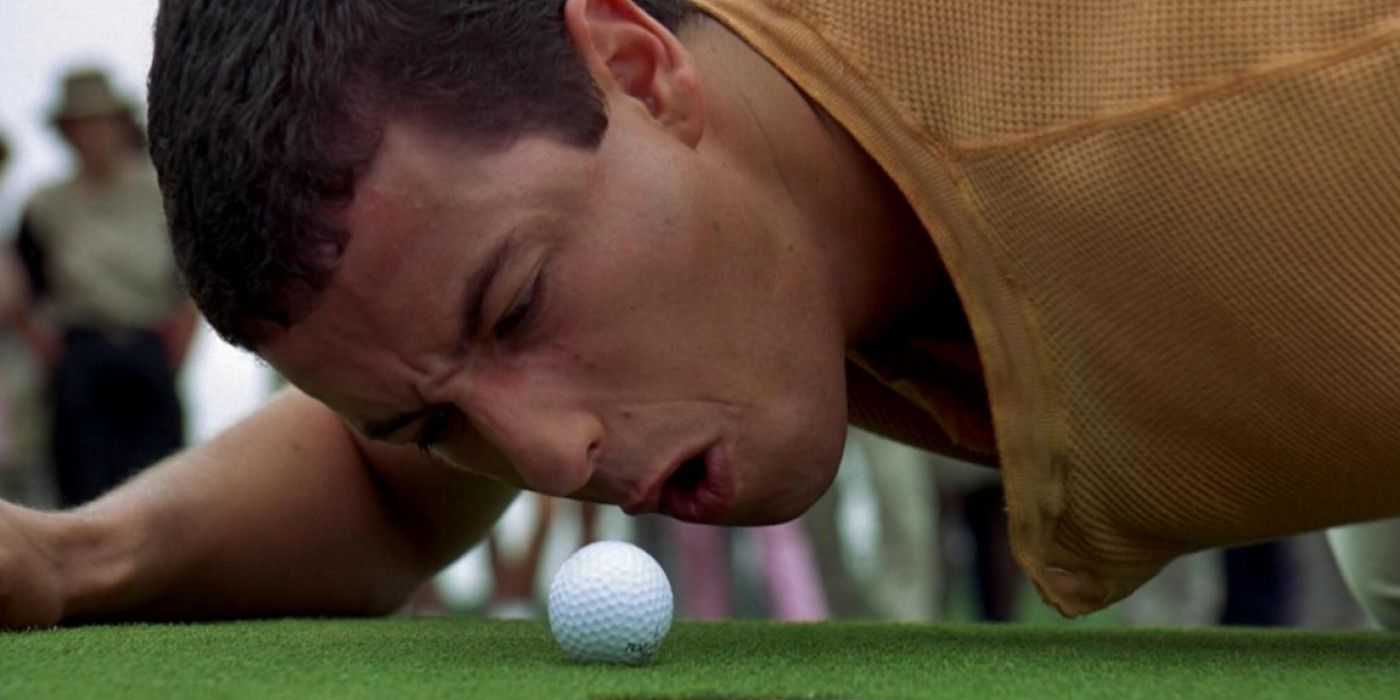Adam Sandler’s comedy movies have been wildly popular with audiences for decades, so why do his best installments have such low scores by critics on Rotten Tomatoes? While Rotten Tomatoes isn’t always the best indication of whether a movie is popular, it does give a sense of films’ receptions and legacies. Popular dramas tend to fare well on the site, but a weak spot in terms of accurate judgments of quality between audience reception and low critic approval has been comedies, particularly the 1990s and ‘00s era goofy comedies starring SNL alumni like Adam Sandler and Will Ferrell.
Getting his start in 1990 on Saturday Night Live, Sandler officially transitioned into the film industry after 1995’s Billy Madison, which received mixed reviews from critics but was surprisingly successful at the box office. Following Billy Madison, Sandler adapted his same adolescent comedy persona in each subsequent film, with particularly memorable performances in Happy Gilmore (1996), The Wedding Singer (1998), Big Daddy (1999), 50 First Dates (2004), Grown Ups (2010), and most recently Hubie Halloween (2020). Sandler’s box office success led him to start his own production company, Happy Madison, through which he continues financing the same type of films he became famous for - even if nearly all of them, even the most popular cult classics, have been critically panned.
While it’s been widely regarded that Sandler’s comedic movie quality has declined in recent years, it’s surprising that the early films that gave him the platform to continue making goofy comedies have low Rotten Tomatoes scores. Sandler’s heyday of his best comedy movies is considered to be the era from Billy Madison to 50 First Dates, opposite Drew Barrymore. In this period, Sandler’s movies felt fresh and aligned with the sense of humor that was pervasive on SNL, essentially turning Sandler's skits into 90-minute features with a little more nuance. Such films resonated with audiences because Sandler imbues his roles with humanity, relying on the same depth and pathos he illustrates in his dramatic roles, like in Punch Drunk Love, Funny People, and Uncut Gems.
The problem is that Adam Sandler's movies always struggled to find a balanced tone. Although Sandler's silly-voiced Happy Gilmore era is largely considered his best in popular culture, critics disagree. Happy Gilmore holds a score of 61%, The Wedding Singer 69%, Big Daddy 39%, and 50 First Dates 45%; from then on, the critical scores of Sandler’s comedic ventures have declined even further. While such movies did well at the box office and are much-loved by Sandler's fans, critics continue to generalize them in one word: Disposable.
Even though Adam Sandler’s early movies widely remain cult classics, that’s exactly what they are - cult classics. They tend to reach a niche audience who finds comfort in the leisure of immature humor, goofy premises, social outrageousness, and simply lowering their expectations of what a “good” movie is “supposed” to be. Adam Sandler’s 1990s movies are extremely popular among a niche audience because they are easily watchable – unlike serious cinema. Sandler’s films have a nostalgic factor and thrive on adolescent humor. The Big Daddy and Waterboy type of films typically need to be watched under the guise that they’re meant for the fun pullout bits, friends ragging on each other, a lack of taking themselves seriously, and being able to turn one’s critical mind off for a few hours - something a critic is unlikely to do.
Adam Sandler’s movies may not be “great,” but they’re enjoyable with juvenile humor that can still appeal to grown adults. The issue is that Adam Sandler’s anger-filled comical movies won’t appeal to wide demographics or bring anything substantially new to the comedy scene, so the majority of critics have never taken to his films. Once Sandler began to specifically dive into much younger audiences, audience reception of his films began to turn as well. As the ridiculousness of the plots increased, Sandler’s comedies became less relatable, thus losing much of the underlying substance that made his early movies so great. While Rotten Tomatoes critics still believed that the substance of Adam Sandler’s Happy Gilmore era was lacking, it was typically enough to engage audiences with a fun premise and some great one-liners about everyday people.


